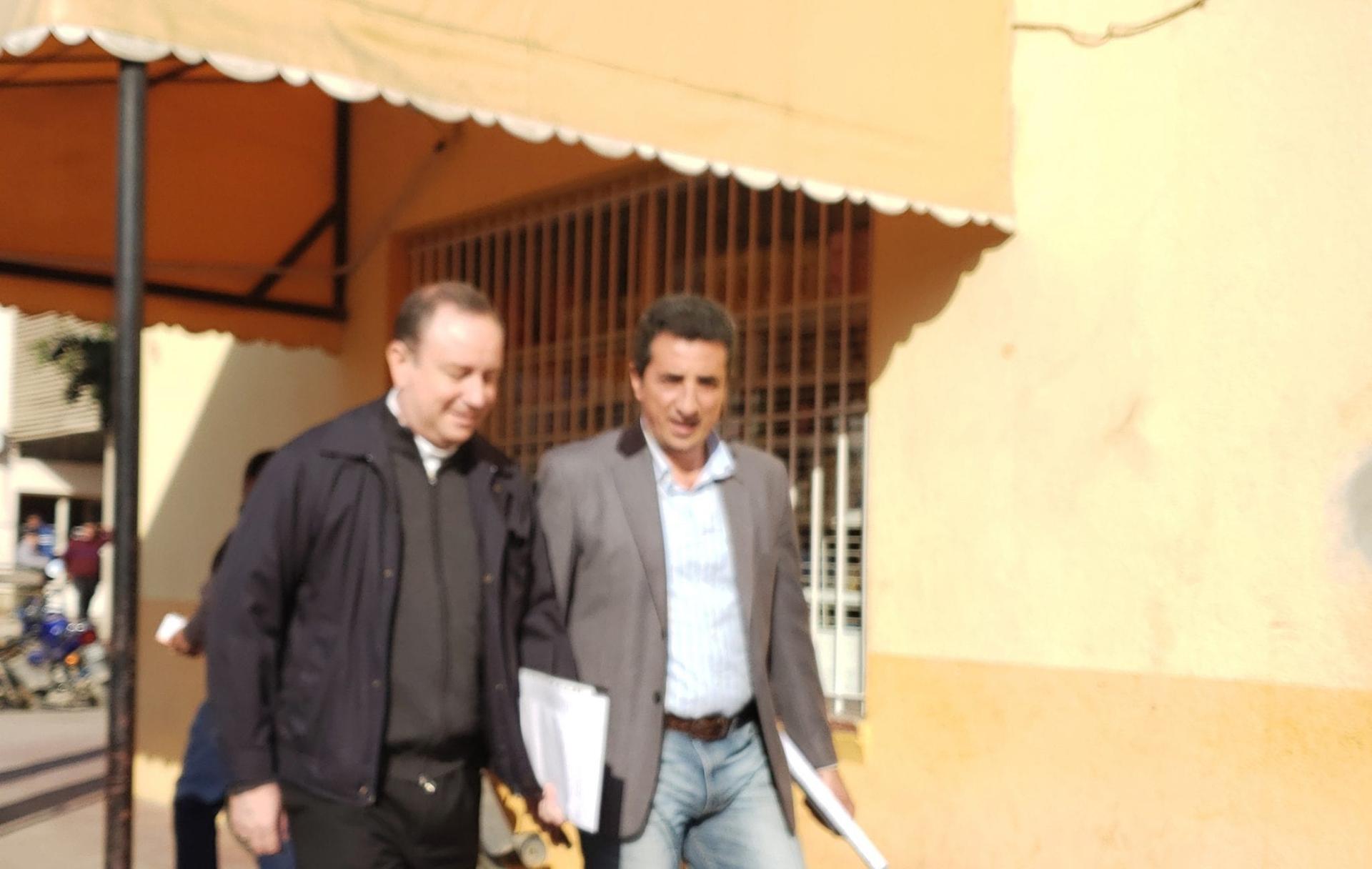ROME — Despite being investigated for allegations of having sexually abused two seminarians, an Argentinian bishop close to the pope has once again been allowed by a judge to travel to Rome.
The judge said that Bishop Gustavo Zanchetta has “collaborated” with the investigation and has a document from the Vatican saying he must return to Rome “to continue with his daily work” – even though he has been suspended from his job.
Crux can confirm that the document being used as justification for allowing Zanchetta to travel back to Rome is a certificate signed by Venezuelan Archbishop Edgar Peña Parra, the Substitute for the Vatican’s Secretariat of State, arguably the third highest position in this office.
Peña Parra was appointed to that key role by Pope Francis last year. The Substitute is responsible for the Vatican’s daily workflow, and is usually the only person, including the Cardinal Secretary of State, who can simply walk in on the pope unannounced.
The Venezuelan prelate has been under fire recently, after Archbishop Carlo Maria Vigano, the controversial former papal representative to the United States, accused him of of perpetrating sexual abuse; the Venezuelan bishops’ conference released a statement last week strongly defending Peña Parra, calling Vigano’s claims “a series of calumnious accusations.”
RELATED: Case of papal aide captures risks of ‘weaponizing’ sex abuse charges
The certificate, dated June 3, was signed by Peña Parra and Vincenzo Mauriello, a lawyer working at the Vatican’s Secretariat of State.
The note, witnessed by Crux in Oran, the diocese where Zanchetta is accused of having abused the seminarians, says that the bishop is “employed by the Vatican,” where he works at the Administration of the Patrimony of the Apostolic See (APSA) and “lives in the Santa Marta residence,” the hotel within Vatican grounds where Francis has lived since the beginning of his pontificate.
There’s no mention that Zanchetta has been suspended from his position since February, when he was formally charged. The note, presented by the bishop’s defense team in June to get Judge Claudio Parisi to lift the bishop’s travel ban, was accepted as evidence without further ado. Against the recommendation of the prosecutor, the prelate was allowed to leave Argentina.
Zanchetta then spent 45 days in Rome, before heading back to Oran, in the northern Argentine province of Salta, where he was expected by the judge on August 8.
At the time, he had to give his passport to Parisi, who re-imposed a series of restrictions, including forbidding him from leaving the country and contacting the victims or their families.
RELATED: Bishop on trial for sex abuse leaves judge’s chambers with a smile on his face
Last week the judge decided once again to return Zanchetta’s passport, freeing him to travel to Rome. The Vatican City State and Argentina have no extradition agreement.
The Vatican has not replied to a request from Crux to confirm whether Zanchetta has returned to the Vatican, where he also faces a trial by the Congregation for the Doctrine of the Faith.
According to Parisi, Zanchetta “constantly collaborated with the justice system from the beginning of the case that is still ongoing against him, so maintaining the measures of coercion imposed would deprive him of being able to continue with his daily work,” referring to his suspended Vatican position.
Prosecutor Maria Soledad Filtrín has asserted that Zanchetta acted “with malicious intent” to have sexual involvement with the victims, “initiating the deployment of acts and maneuvers of seduction, manipulation and preeminence.”
The fact that he was the victims’ superior, she said, inspired “reverential fear through inappropriate touching with a clear sexual significance, breaking the will of [the men] fearful of losing their status as seminarians and ending their vocation to religious service.”
The charges carry a maximum penalty of 10 years in prison, although a shorter term would be more likely, since Zanchetta has no criminal record.
Francis, who worked closely with Zanchetta when both held positions at the bishops’ conference in Argentina, acknowledged in an interview with Mexican journalist Valentina Alazraki in late May that Zanchetta had been investigated at his request, and is currently facing trial.
RELATED: In new interview, Pope Francis says he ‘knew nothing’ about McCarrick
Charges of defrauding the government
From the first allegations, privately made by five priests against the bishop in 2016, he’s been accused of mismanaging church funds, some of which were donations from the faithful, and others came from the government.
As a former seminarian from Oran told Crux earlier this month, Zanchetta would tell seminarians that the province’s governor, Juan Manuel Urtubey, was the “father of providence.”
According to official public decrees, the state’s government gave the Diocese of Oran around $90,000 in 2015. Some of it went for building of the St. John XXIII seminary and some for the repairs of a parish house. Money was also given for lectures in the seminary, which audits discovered never happened.
The accusations against Zanchetta include that he told seminarians that they had to vote for Urtubey in provincial elections.
Two prosecutors in Oran are investigating the charges.
Follow Inés San Martín on Twitter: @inesanma
Crux is dedicated to smart, wired and independent reporting on the Vatican and worldwide Catholic Church. That kind of reporting doesn’t come cheap, and we need your support. You can help Crux by giving a small amount monthly, or with a onetime gift. Please remember, Crux is a for-profit organization, so contributions are not tax-deductible.












